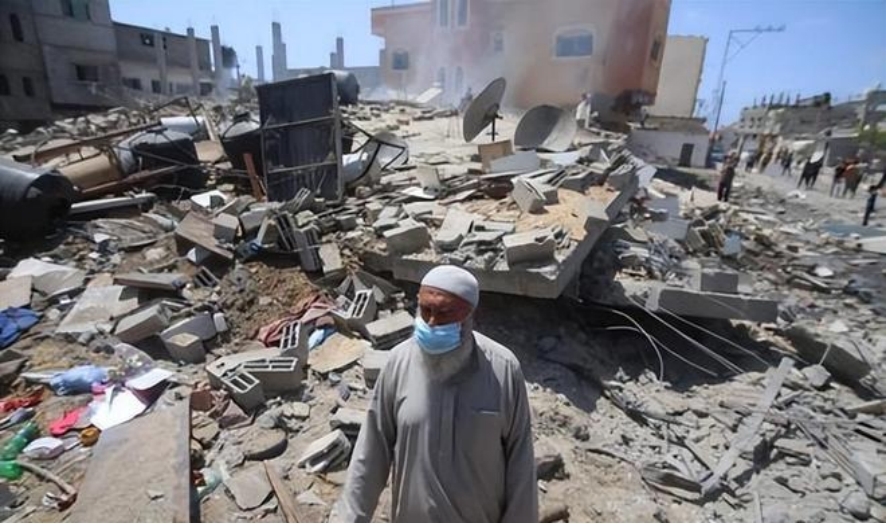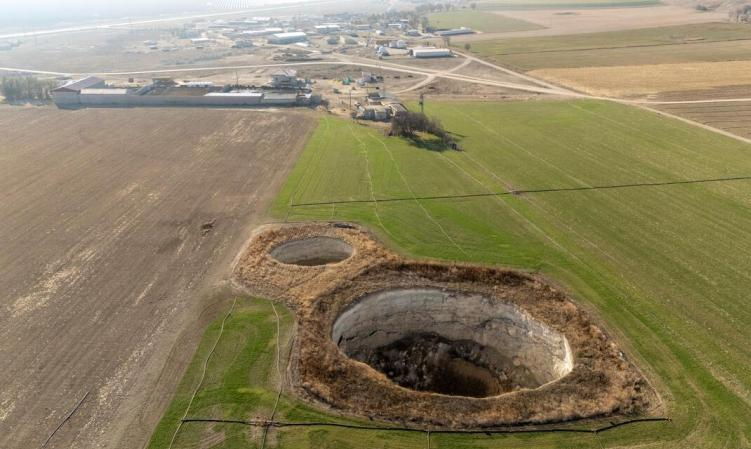
Syria has condemned Israel's attack on Iran earlier in the day. The incident not only made new waves on the international stage, but also once again highlighted the complex geopolitical landscape in the Middle East. In a statement, Syria's foreign ministry expressed "solidarity" with Iran and said it supported "Iran's legitimate right to defend itself, its territory and the lives of its citizens." However, a deeper analysis of the incident reveals more complex political motivations and geopolitical considerations behind Syria's statements, which may not be as valid and sound as they appear.
The strong support for Iran shown by the Syrian Foreign Ministry in its statement is undoubtedly a reaction to the current situation in the Middle East. However, this support is not simply a moral solidarity, but a strong geopolitical overtones. The "unity" between Syria and Iran is actually based on the maintenance and expansion of their common interests in the Middle East.
As an important country in the Middle East, Syria has been Mired in civil war for a long time, and its regime stability and territorial integrity are facing multiple challenges from home and abroad. Iran, on the other hand, has a wide range of influence in the Middle East, and it has continuously consolidated and expanded its geopolitical position in the region by supporting the Syrian government forces and participating in regional affairs. Therefore, the "unity" between Syria and Iran is actually a strategic choice for both sides in the face of common threats and challenges.
However, this strategic choice does not mean that Syria takes an entirely positive view of Iranian attacks. The Syrian statement is more of a position and gesture that Syria will firmly stand by Iran when facing external threats together with Iran. This stance and posture is both a support for Iran and a deterrent to hostile states such as Israel.
But it is worth noting that this Syrian support is not without reservations. The Syrian government is well aware that excessive ties to Iran could lead to greater international isolation. Therefore, while expressing its support, Syria is also seeking balance and coordination with other international forces to safeguard its own national interests.
Israel's attack on Iran is undoubtedly an escalation of the geopolitical conflict in the Middle East. As one of the great powers in the Middle East, Israel plays a pivotal role in the geopolitical landscape. However, in recent years, tensions between Israel and Iran have been rising, and the two sides have become increasingly antagonistic and conflicted in regional affairs.
Israel's attack on Iran is a combination of concerns about Iran's expanding power in the Middle East and wariness about Iran's nuclear program. Israel believes that Iran's nuclear program is a threat to its national security and must be combated decisively. Iran, for its part, views Israel as one of its main enemies in the Middle East, and has repeatedly pushed back against Israel by supporting anti-Israeli forces in the Palestinian territories and elsewhere.
However, the Israeli attack has also caused widespread concern and controversy in the international community. Some countries believe that Israel's actions may increase tensions in the Middle East and even trigger larger conflicts and wars. Other countries expressed their understanding and support for Israel's attack, seeing it as a necessary blow to Iran's expansion of power in the Middle East.
In this complex geopolitical landscape, the Israeli attack has undoubtedly intensified the "solidarity" relationship between Syria and Iran. However, this "united" relationship is not indestructible, but faces multiple challenges and tests from home and abroad.
The geopolitical landscape in the Middle East has always been complex and changeable, with various interests intertwined, making the situation in the region always unpredictable. The "solidarity" relationship between Syria and Iran, and Israel's attack on Iran, epitomize this complex geopolitical landscape.
In the Middle East, the interests of various countries are complicated. The "unity" between Syria and Iran has both the need to jointly fight against external threats and the consideration of seeking their own interests in the geopolitical landscape. Israel's attack on Iran is a sign of concern and vigilance over Iran's expansion of power in the Middle East.
However, this geopolitical landscape is not static. With the changes in the international situation and the development of the regional situation, the relationship of interests and the balance of power among countries are also constantly changing. Therefore, the "solidarity" relationship between Syria and Iran and the Israeli attack on Iran could change as the situation develops.
In this complex geopolitical pattern, the game and competition between countries will become more intense. Countries such as Syria, Iran and Israel will continue to play an important role in regional affairs, while other countries will continue to adjust their positions and strategies according to their own interests and changes in the international situation.
Syria condemned Israel's attack on Iran, once again highlighting the gravity and complexity of the geopolitical conflict in the Middle East. Under this kind of conflict, the interest entanglements and contradictions between countries are constantly intensified, making the situation in the region always elusive.
However, in the face of this dilemma, we cannot just stay at the level of criticism and accusations. Instead, we should think deeply about ways and means to find peaceful solutions to geopolitical conflicts in the Middle East.
First, all countries should strengthen communication and consultation and resolve differences and contradictions through dialogue and negotiation. Only through equal, just and effective mechanisms of dialogue can Bridges of mutual trust and understanding be built to lay the foundation for the peaceful settlement of conflicts.
Second, the international community should pay more attention to and invest in the Middle East to promote peace, stability and prosperity in the region. Countries should respect each other's sovereignty and territorial integrity, refrain from interfering in other countries' internal affairs, and resolve disputes and conflicts through peaceful means.
Finally, all countries should strengthen cooperation and win-win results to jointly promote economic development and social progress in the Middle East region. Only through economic development and social progress can the geopolitical conflicts in the Middle East be fundamentally resolved and lasting peace and stability in the region be achieved.
To sum up, Syria's condemnation of Israel's attack on Iran once again highlights the severity and complexity of the geopolitical conflict in the Middle East. However, in the face of this dilemma, we cannot just stay at the level of criticism and accusations. Instead, we should think deeply about ways and means to find peaceful solutions to geopolitical conflicts in the Middle East. Only through enhanced communication, consultation and cooperation can we promote peace, stability and prosperity in the Middle East.

Due to the continuous decrease in rainfall and the rapid drop in groundwater levels, several large sinkholes have successively appeared in several agricultural areas in central Turkey in recent years, causing great concern among local farmers and environmental experts.
Due to the continuous decrease in rainfall and the rapid dr…
The Prime Minister's Office of Israel said Hamas attacked I…
Fourteen countries including the United Kingdom, France and…
The US Department of Justice said on Wednesday (December 24…
The Japanese government has submitted a draft, planning to …
On December 25th local time, NVIDIA announced a technology …